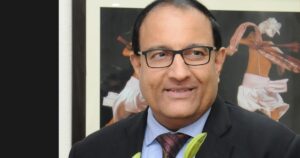
In a world where linear consumption patterns have long prevailed, the concept of a circular economy emerges as a beacon of hope and sustainability. This innovative approach challenges the traditional “take, make, dispose” model, aiming to create a regenerative system that minimizes waste and maximizes the lifespan of resources. As we usher in the era of the circular economy, its impact on our lives is bound to be profound and transformative.
At its core, the circular economy is a departure from the linear mindset that has dominated our economic systems for decades. Instead of viewing products as disposable, the circular model emphasizes durability, repairability, and recycling. This shift is not merely a theoretical concept; it’s a practical solution to the environmental challenges we face today.
One of the most noticeable changes in our lives will be the way we consume and dispose of goods. The throwaway culture will give way to a culture of repair, reuse, and repurpose. Products will be designed with longevity in mind, and consumers will be encouraged to repair or upgrade rather than replace. This shift will not only reduce the burden on landfills but also save resources and energy that would otherwise be used in the manufacturing of new products.
The circular economy also heralds a new era for businesses. Companies will find themselves rethinking their entire production processes, adopting a cradle-to-cradle approach where products are designed with end-of-life considerations in mind. This shift will encourage innovation as companies seek ways to make their products more sustainable and less resource-intensive. In turn, this can create new business opportunities, fostering a more resilient and adaptable economy.
Job markets will undergo transformations as well. The demand for skills related to recycling, remanufacturing, and waste management will surge. New professions and industries will emerge, creating a workforce that is aligned with the principles of the circular economy. As the need for sustainable practices grows, so too will the demand for individuals with expertise in renewable energy, waste reduction, and eco-friendly technologies.
From a consumer standpoint, embracing the circular economy may initially require a shift in mindset. The idea of ownership may evolve into one of access, with more emphasis on leasing, sharing, and subscription-based models. This shift could lead to a more conscious and intentional approach to consumption, fostering a sense of responsibility for the products we use and their impact on the environment.
The circular economy is not just about waste reduction; it’s about reshaping our entire economic system to be more sustainable, resilient, and equitable. It has the potential to address social issues by creating inclusive business models and ensuring that the benefits of a circular approach are shared across communities. As companies adopt ethical and sustainable practices, consumers will be empowered to make choices that align with their values, supporting businesses that prioritize environmental and social responsibility.
In conclusion, the transition to a circular economy represents a fundamental shift in our approach to production, consumption, and waste. The impact on our lives will be far-reaching, influencing the way we work, consume, and interact with the world around us. Embracing the circular economy is not just a choice; it’s a necessity for a sustainable and thriving future. As individuals, businesses, and communities, we have the power to shape this transformative journey and create a world where waste is minimized, resources are optimized, and the well-being of the planet is at the forefront of our collective consciousness.
Also read:https://worldviewhub.com/tag/nyspmp/





